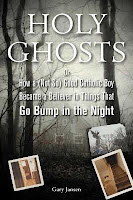The Path to Rome by Hillaire Belloc
Belloc made a pilgrimage from France to Rome, vowing to travel on foot and live a simple life. This story tells that tale along with lots of asides and other anecdotes thrown in. He made the pilgrimage around 1900, so a long time ago when money and technology and infrastructure were much different. He had language barriers along with the physical barriers of rivers and mountains (like the Alps!). He made some plans, like mailing money to post offices in various cities, but he traveled mostly as a vagabond. He slept in the countryside or at inexpensive inns (or in people's barns), talking with the locals as best he could (he knew French and Latin, but not German and barely Italian).
Belloc has a whimsical and light-hearted style. The narrative meanders a lot as he goes down occasional philosophical or theological rabbit holes. That reminded me of The Hitchhikers' Guide to the Galaxy, which I like a lot. Occasionally he throws in a second voice, a sort of heckler, that he has mini-dialogues with, usually for humorous purposes. That reminded me of Jim Gaffigan's self-heckling, which I like a lot. He includes some sketches he made of the mountains, trees, and structures he drew along the way, though he says in the text that he's not very good. I found the travel descriptions a little dull and he is right about the pictures. The book is over 400 pages and at the end I felt like it could be edited down to make it tighter and more enjoyable.
Mildly recommended--I don't regret reading it but I will probably never read it again. Lord of the Rings does a much better job wandering through the countryside in an interesting way.














